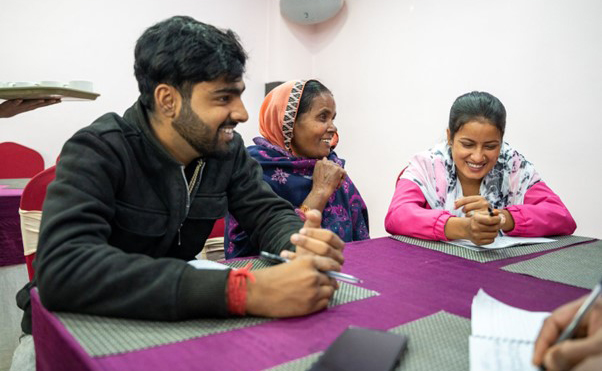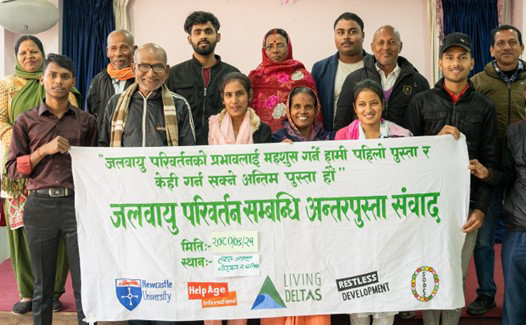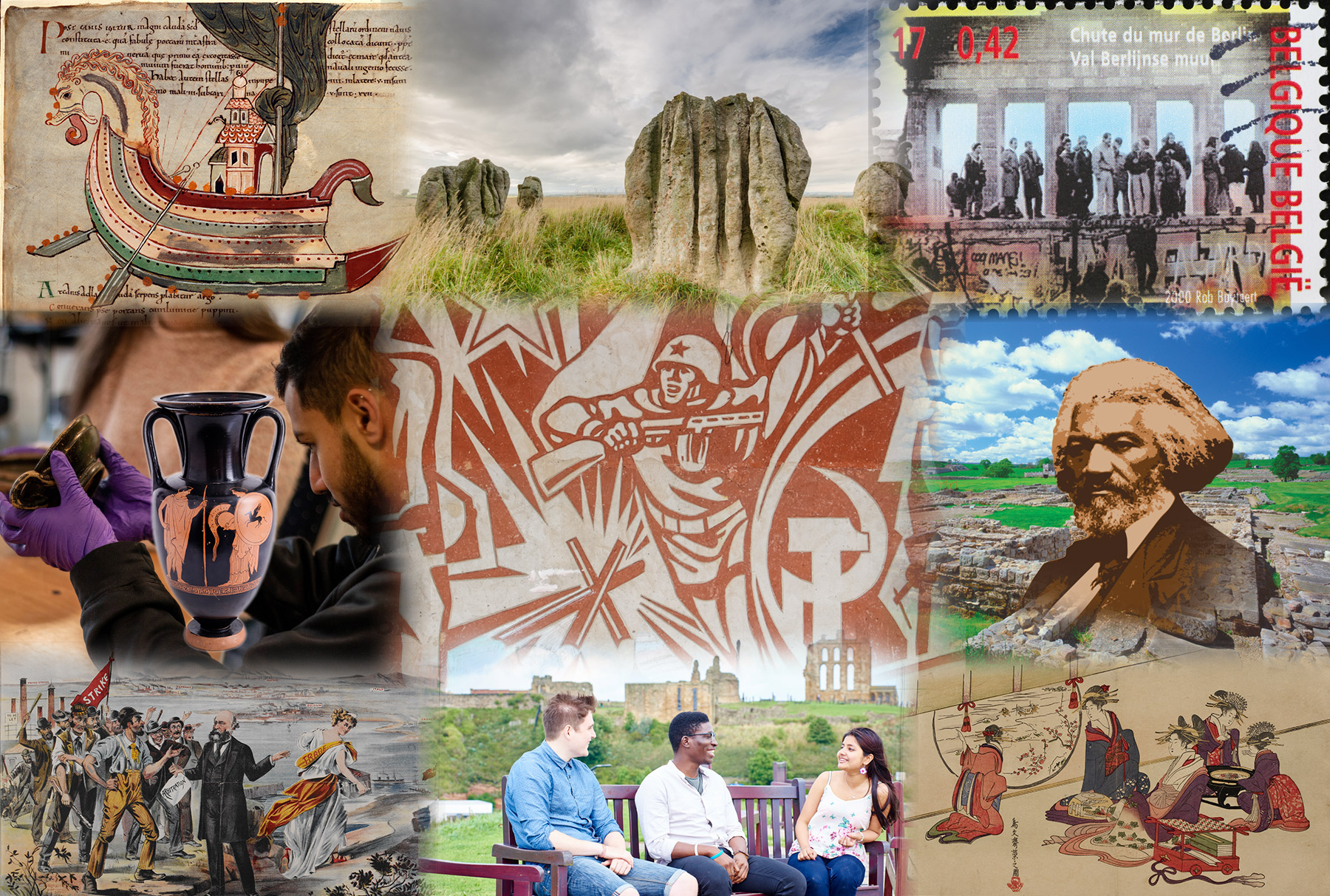Bringing Generations Together for Climate Action
A new programme will encourage collaboration between young people and older generations to generate greater insights, innovation and impact in climate affected communities.
5 June 2024
Between August 2023 and March 2024, HelpAge International, Restless Development, and Siobhan Warrington, a researcher from Newcastle University’s Living Deltas Research Hub, collaborated on a pilot project to explore the effectiveness of an intergenerational approach in supporting locally led responses to the climate crisis.
This collaboration emerged from the Living Deltas Hub’s intergenerational research on environmental change. The Living Deltas Research Hub is a large international and interdisciplinary network of scientists, social scientists and humanities scholars located on four continents, whose overall aims are to mitigate the effects of climate change on deltas and the livelihoods of delta dwellers. The intergenerational research has been coordinated by the The Oral History Unit and Collective, based in the School of History, Classics and Archaeology at Newcastle University. The research has explored the experiences and perceptions of environmental change and continuity across generations and genders.

The research found older and younger people in rural delta communities share many similar experiences of, and concerns about, environmental change and climate change; and that there is significant mutual respect between generations regarding their different knowledges and capacities.
The pilot project with Help Age International and Restless Development was an opportunity to test some of the shared assumptions of the value of bringing older and younger people together to share experiences and discuss responses to the impacts of climate change in most-affected communities.
Intergenerational Dialogues
In Nepal and Uganda, dialogues took place in rural and urban settings. The approach was guided by an emphasis on meaningful participation and respecting diverse experiences, while acknowledging power dynamics. Separate dialogues were arranged first with young people, and with older people, followed by a joint dialogue to bring both generations together.
All 101 participants were encouraged to share their lived experiences of climate change and were given the opportunity to listen to each other and reflect.
Spaces were provided for sharing:
- lived experiences of climate change and its impacts across different generations, from extreme weather events to environmental degradation over time;
- coping strategies of different generations, from past to present;
- ideas for action to mitigate and adapt to climate change and work towards sustainable futures for all.
An inclusive and open-ended approach revealed the multiple impacts of the climate crisis on the lives of younger and older, women and men and demonstrated the multiple benefits of bringing generations together to strengthen intergenerational solidarity in taking collective action to respond to the climate crisis.
These dialogues provided a space for listening and reflection, nurturing respect and empathy between the generations and strengthening social cohesion. For communities living with the threats of climate change, social cohesion is more important than ever
From dialogue to action
Following the dialogues, all partner organisations were each provided with a small grant to support local climate actions. In Nepal, a series of public intergenerational dialogues on climate change will be arranged. These will promote the need for inclusive, locally-led climate action to be supported by local government and civil society. In Uganda, fruit trees and organic manure will be provided to all younger and older people who participated in the dialogues. This is in response to participants’ concerns relating to food security and the loss of tree cover.
Following the success and lessons of this pilot a multi-country programme is being developed to bring generations together for inclusive locally-led climate action and to promote an intergenerational approach from local action to national policy and international advocacy.
The new programme will encourage collaboration between young people and older generations to generate greater insights, innovation and impact in climate affected communities.
A learning brief and short film about this initiative was launched at a webinar on Thursday 25th April as part of Global Intergenerational Week 2024.
Photographs courtesy of Restless Development Nepal

